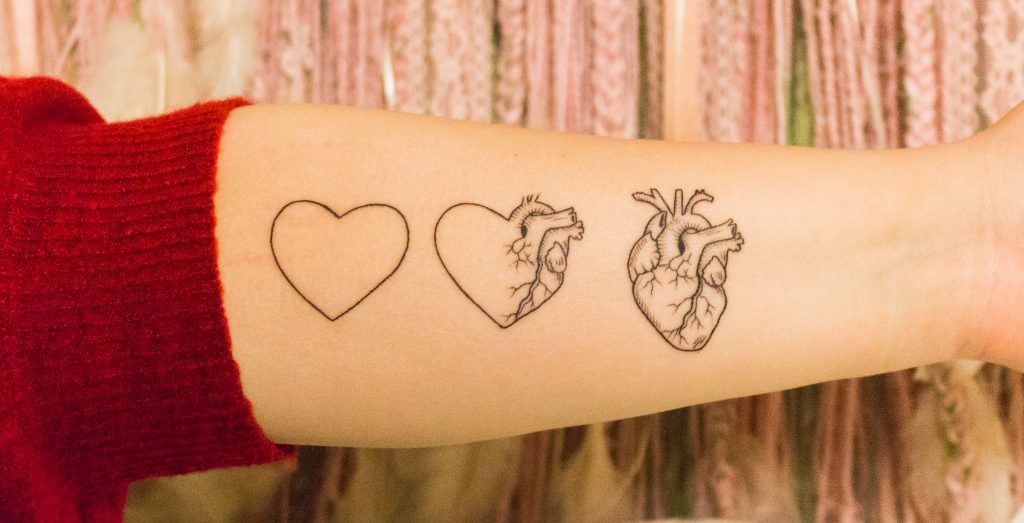
Rebecca Meyers | Lifestyle Editor
According to quora.com, about 29 percent of Americans have at least one tattoo, though most don’t stop at just one. It’s becoming increasingly more common to see people with tattoos, especially on college campuses. Though the decision of whether or not to get inked is ultimately up to each individual, there are some things everyone should consider before making it final.
Pain levels — When considering a tattoo, the question that inevitably comes up is “will it hurt?” or, more accurately, “how much will it hurt?” Some go looking for specific answers to that question, understandably wanting to know exactly what to expect. However, the truth is that pain levels are slightly different for everyone, and there are many factors that affect how painful a tattoo will be. Sometimes, like in my case, this leads to lots of stress leading up to getting inked. There are, however, some factors that can give a general idea of of how uncomfortable a tattoo will be, such as placement and size of the tattoo.
Timing — Some first-timers don’t realize that timing is an important thing to consider when scheduling a tattoo. Tattoo care involves things like keeping the area dry, away from potential infections and out of direct sunlight. Therefore, getting a tattoo right before a vacation to somewhere warm and sunny might not be the best choice. Though exact conditions can’t always be predicted — I got my first tattoo in October and did not expect to have to shield it from the hot sun — having an idea will keep the tattoo on the track to healing.
Quality and price — Tattoos are one of the best examples of the phrase “you get what you pay for.” While some might find it tempting to have an unexperienced artist friend buy a kit off of eBay Inc. and have them do the tattoo, a safe and quality one is usually much more expensive. If a professional artist costs more, it’s usually because they are more experienced and are very skilled at their trade. Going to a professional usually means a percentage of the price has to be paid up front at the time of the appointment, and the rest is paid in cash afterwards. Also, it won’t save much money in the long run if it has to get covered up or removed, or becomes infected due to not being done properly and requires medical attention.
Contact the author at howllifestyle@wou.edu
Photo courtesy of Ashlynn Norton

